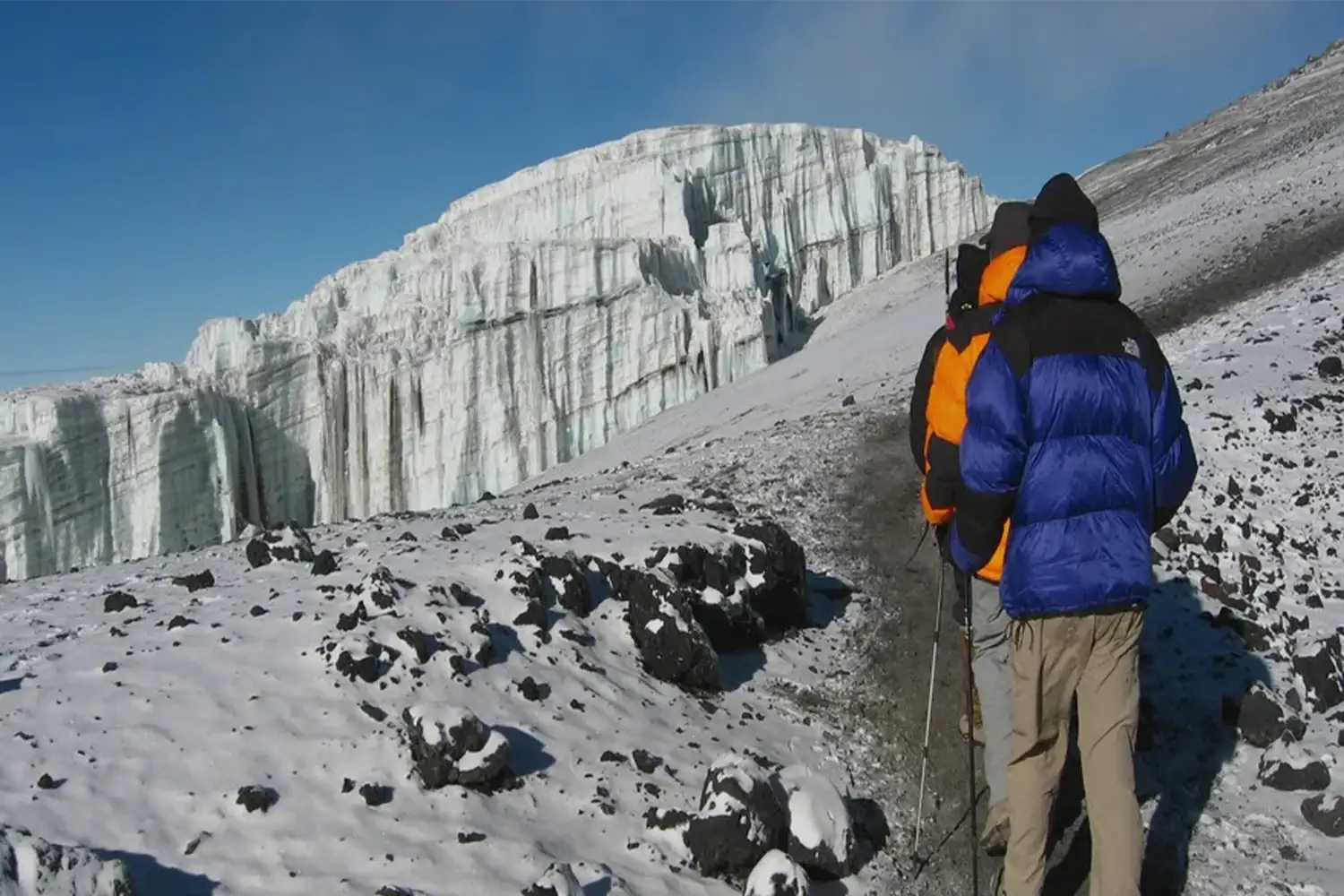'Kilimanjaro' Meaning – The Full History of Tanzania’s Majestic Peak
Discover the meaning of the name 'Kilimanjaro' and explore the rich historical, cultural, and linguistic roots of Africa’s highest mountain.
Itinerary Prices Book'Kilimanjaro' Meaning: The History of Tanzania"s Majestic Peak
Mount Kilimanjaro is more than just Africa’s highest peak—its name carries centuries of history, mystery, and meaning. 'Kilimanjaro' is a name that has sparked scholarly debate, folklore, and fascination for decades. Located in northeastern Tanzania, this majestic mountain is deeply embedded in the culture and identity of the region. But where does the name actually come from? Is it from the local Chagga language, or a colonial misinterpretation? Or perhaps a blend of words meaning "mountain of greatness"?
In this guide, we trace the roots of the word "Kilimanjaro," exploring possible linguistic origins, colonial influence, and the rich cultural narratives passed down through generations. Whether you"re preparing for a trek or curious about the mountain"s deeper story, this exploration will take you back through time—before the first climber set foot on its slopes.

The Etymology of 'Kilimanjaro'
The name “Kilimanjaro” is believed to be a combination of Swahili and local Chagga language elements. One popular interpretation is that it derives from the Swahili word “Kilima,” meaning “mountain,” and a Chagga term “Njaro” or “Njaro/Ngyare,” which might refer to whiteness, referring to the snow-capped peak, or possibly “caravan/journey.”
1. The Swahili-Chagga Connection
Swahili-speaking coastal traders and explorers may have described the peak they saw inland as “Kilima” (hill or mountain), while the Chagga people who lived at its base may have used “Njaro” to describe the gleaming snow atop the summit. Together, “Kilima-Njaro” could have meant “Shining Mountain” or “Mountain of Whiteness.”
2. Colonial Interpretations
When European explorers arrived in the 19th century, they heard locals and Swahili-speaking guides use different names. The German missionaries and colonial administrators recorded it as “Kilimandscharo,” which evolved into “Kilimanjaro.” Miscommunication and linguistic blending may have helped solidify the name we know today.
3. Chagga Legends and Oral History
The Chagga people have long considered the mountain sacred. In Chagga folklore, the summit of Kilimanjaro was home to spirits, deities, or ancestors. Some tales describe it as a forbidden place with magical snow and fire. The exact term “Njaro” may have referred to a legendary spirit who resided on the mountain, giving rise to the name “Mountain of Njaro.”
4. Theories from Linguists
Linguists have proposed various interpretations:
- “Kilima” (Swahili): hill or mountain
- “Njaro” (Chagga/Masai root): whiteness, shining, or cold
- “Jaro” (Masai): caravan or journey, possibly referencing ancient trading routes
5. Kilimanjaro’s First Recorded Names
Before 'Kilimanjaro' became the standard name, various communities had different references to the mountain. Arab traders sometimes referred to it as the “Mountain of the Moon.” Early German cartographers labeled it with different phonetic versions. Over time, 'Kilimanjaro' became the internationally recognized name.
6. Why the Name Still Matters Today
The name ' Kilimanjaro' is symbolic. It represents Tanzania’s natural pride, global identity, and ecological diversity. It’s featured on tourism campaigns, logos, and local literature. Understanding its meaning deepens appreciation for the mountain’s spiritual and linguistic heritage.
What Does Kilimanjaro Mean Today?
To many, Kilimanjaro means more than just “mountain.” It stands for strength, endurance, and a connection between Earth and sky. It’s a place of personal and cultural transformation—where climbers test their limits, and communities find historical meaning. Whether you"re climbing it or admiring from afar, understanding its name adds depth to the experience.
Need a Cultural Tour or Historical Trek?
At Jaynevy Tours, we offer more than just mountain climbs. Our cultural treks explore the oral traditions, myths, and historical roots of Kilimanjaro. Contact us to learn more:
- Email: info@jaynevytours.com
- Gmail: jaynevytours@gmail.com
FAQs – 'Kilimanjaro' Meaning & Cultural Background
What does the name Kilimanjaro mean?
Most theories suggest it means “Shining Mountain” or “Mountain of Whiteness,” combining Swahili and Chagga roots.
Is Kilimanjaro a Swahili or Chagga word?
It’s likely a blend of both—Swahili “Kilima” and Chagga “Njaro” or similar terms.
Did Kilimanjaro have a name before Europeans arrived?
Yes, local tribes had different names for it based on their language and beliefs, often referencing spirits, snow, or elevation.
How did colonial explorers record the name?
Germans documented it as “Kilimandscharo,” which later became “Kilimanjaro.”
Can I learn about this during a Kilimanjaro trek?
Yes, guided treks often include cultural briefings and stories from local guides who know the history and oral traditions of the region.
BOOKING FORM
Book your tour here
RELATED PACKAGES
- Baraka Aquarium and Nungwi Village in Zanzibar
- Diving Tour in Zanzibar
- Zanzibar Sky Diving Tour
- Dolphin Snorkeling Sandbank Tour in Zanzibar
- Horse Riding Tour in Zanzibar
- Jet Ski Tour in Zanzibar
- Jozani Forest Visiting in Zanzibar
- Quad Bike Tour in Zanzibar
- Traditional Sunset Dhow Cruise Tour in Zanzibar
- The Best Stone Town Tour in Zanzibar
- Zanzibar Butterfly Tour
MORE PACKAGES
- Mount Kilimanjaro
- Ngorongoro Crater
- Serengeti National Park
- Tarangire National Park
- Lake Manyara National Park
- Zanzibar Island
- East Africa Packages
- Tanzania Safari From Zanzibar
- Kenya packages
- Rwanda Packages
- Uganda packages
- Mikumi National Park
- Kitulo National park
- Mkomazi National park
- Selous (Nyerere National Park)
